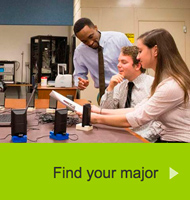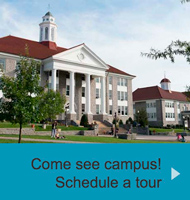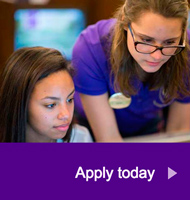Explorer
Jesmine Roberts-Torres ('16)
News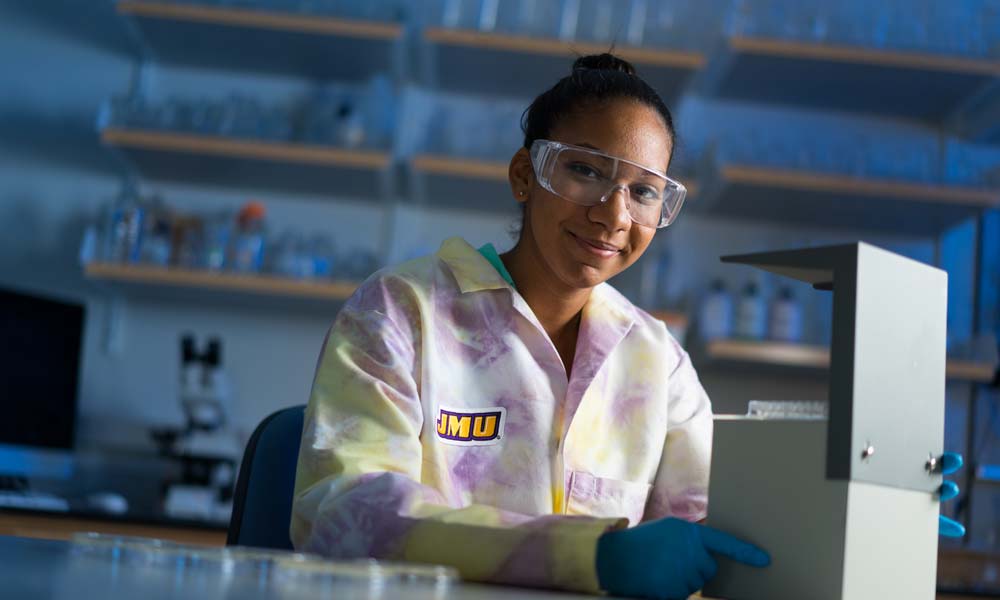
‘JMU has been great. I have made a lot of friends and I have grown so much as a person — being more independent and figuring out so many things for myself. I would definitely recommend JMU.’
|
Jesmine Roberts-Torres ('16) Major: Highlights: |
Talk about your research project.
We became interested in this stream setting for our research because there were lots of news articles out there saying that Staphylococcus, or Staph, was being found on chicken in the grocery store and also on beaches, which aren’t really common places for Staph. Our thinking was that if we have poultry plants here and cattle farms here, there should be Staph in the water if these reports have any basis in fact. So our team took samples from a couple local streams, and we were able to find Staph that had some sort of resistance, so we did an antibiotic resistance test and this Staph had resistance to tetracycline, which is probably the most used antibiotic in chicken and cow feed. We also found resistance to methicillin, which is very surprising because that antibiotic isn’t used in food. So what I’m looking for in my part of the project is the actual mecA gene that confers resistance to methicillin. Lately, we’ve decided to sequence the entire genome. It has been intense.
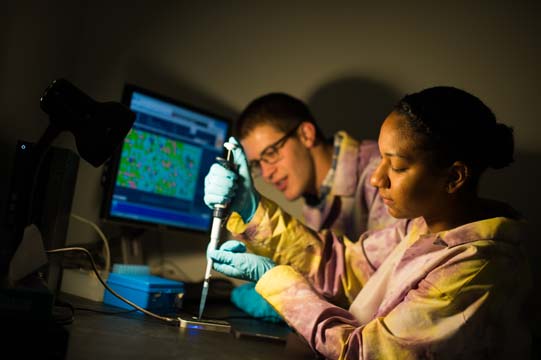
So how you do the testing?
We do a sediment sample and a water sample. There are techniques to take the cells out of the soil. We have to grow them, and then once we grow them we can do antibiotic tests on them. There are several different kinds of tests that can be done. One of the tests determines how resistant they are. There are varying degrees of resistant, and we can pinpoint those in the testing.
Is research what you thought it might be?
There have been so many setbacks, but that’s just part of doing research. There is so much to figure out when you are doing research, and you have to be constantly aware of what’s going on with your project. Just because a particular protocol works in one instance doesn’t mean that you can repeat it and get the same result each time. And I’ve been spending at lest eight hours a week doing research for awhile now.
What’s next?
I want to get into the workforce. My plan is to get a job somewhere in the northern Virginia region because that’s where I’m from, and I like it there. I’m looking forward to the big city life again. Maybe after a couple years of working, I may want to go back to graduate school. I’m not 100-percent sure at this point what I might want to study in graduate school — I love genetics and I love microbiology and I’m hoping to find a field that has both of those in it.
Any regrets about not pursuing medical school?
No. I don’t really have any regrets. I do like helping people — that’s one of my major character traits — but you can also help people in lots of other ways. The research that you do could, for example, help make medicine. I definitely want to go into the field that helps make medicine. My cousin has lupus, and I want to learn all about the research that exists, and if there is some sort of medicine that we can make to help with lupus.
So JMU has been a good experience?
JMU has been great. I have made a lot of friends and I have grown so much as a person — being more independent and figuring out so many things for myself. I would definitely recommend JMU. So many people are so happy here. The professors are wonderful. They care, and that’s a big part of why I like JMU so much. All of my teachers have definitely cared about how I was doing and if I really understand the material. I also feel like I can go to them with any questions that I have. That has been huge for me.


